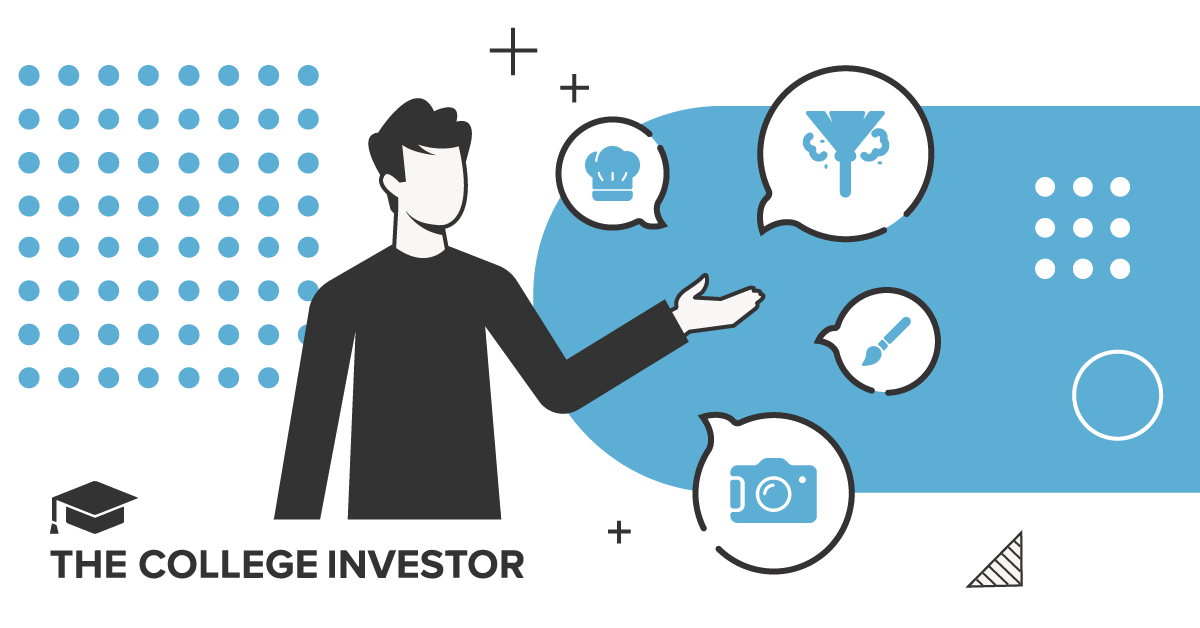- Financial Maverick
- Posts
- Eye On AI, 4 Investing Lessons, and Spotting Hidden Fees
Eye On AI, 4 Investing Lessons, and Spotting Hidden Fees
Want to borrow cash? Tips on what's okay, what's not
Good afternoon. It's Wednesday, April. 24 and we're covering how to spot hidden fees and save money, borrowing cash, 5 key habits of profitable real estate agents in 2024, and much more.
First time reading? Sign up here.
Stock Market Update
Market Performance: April 23, 2024.
The Dow Jones Industrial Average and the other major stock indexes looked to continue their recent string of gains Wednesday morning, as Boeing (BA) and Tesla (TSLA) jumped on first-quarter earnings results. Next up, Meta Platforms (META) is due to report after the close on the stock market today.
The Dow Jones Industrial Average dropped 0.1% in morning action, as the S&P 500 gained 0.2%. Tech-focused Nasdaq 100 futures climbed 0.6% after the opening bell. Early Wednesday, the 10-year Treasury yield ticked higher to 4.64%.
Further, oil prices dropped 0.2% as West Texas Intermediate futures traded around $83.20 a barrel. Among U.S. exchange traded funds, the Nasdaq 100 tracker Invesco QQQ Trust ETF (QQQ) was up 0.6%, while the SPDR S&P 500 ETF (SPY) climbed 0.3%.
Late Tuesday, Tesla announced worse-than-expected earnings and revenue for the first quarter on Tuesday, with the electric-vehicle giant reporting its lowest quarterly per-share earnings since 2021. But Tesla stock soared more than 14% in morning trading as it signaled "more affordable" new models are still coming.
Financial Maverick Insights
Internet Bill Skyrocketing? How to Spot Hidden Fees and Save Money
The internet is home to heartwarming puppy bus rides, thrilling streaming shows and hilarious memes. But we aren't so fond of our internet service providers. ISPs are at the bottom of the pile regarding customer satisfaction -- even lower than the Department of Motor Vehicles, according to the American Customer Satisfaction Index.
One big reason is the often exorbitant and misleading fees. We get lured by dazzling promotional rates -- only $20 a month! -- and therefore think we know what we're going to be paying. But inevitably, it always ends up being more expensive than expected.
Be aware of one-time fees
Let's stick with the premise that an internet provider has presented you with a $20 promotional rate. That sounds like a good deal, right? Well, it could be. However, you need to know that most ISPs charge one or two additional fees at the very start of service.
Skip those additional monthly fees, if you can
OK, you've gotten past the opening fees and are ready to settle into that nice $20 monthly rate. Not so fast. Another item to look out for that can be tacked onto your monthly costs is an equipment rental fee. This is a charge for using the provider's equipment -- usually a modem, router or gateway (a combination of both). You can expect to pay between $5 and $15 monthly for this rental fee. While some providers allow you to skip this charge by using your own equipment, some ISPs (particularly satellite internet providers) don't allow you to opt out. So, if you're not careful, your $20 rate could go up to $35 a month.
Avoid late payment fees and other penalties
Much like any other utility or service, you must pay your bills on time to avoid late payment fees. Those can add anywhere from $5 to $35 to your monthly bill. But depending on the type of internet service or plan you sign up for, you also need to be aware of other potentially stiff penalties.
Pay attention to provider-specific fees
There are over 2,000 different ISPs nationwide, so we're not about to provide an exhaustive list of every provider-specific fee. However, this can serve as an example of just a few different "junk fees" that customers will encounter across the US and give you a good idea of some of the things you should be aware of.
What's the cheapest internet available?
The answer to that question depends on where you live and the internet connection types available in your area. But generally speaking, cable and fiber will duke it out for the cheapest internet. In a given area, you may find that a cable internet provider offers the cheapest plan available -- say, a $20 a month offering from Xfinity. However, fiber plans from providers like AT&T or Google Fiber will frequently offer better value.
Want to borrow cash? Tips on what's okay, what's not
It’s a financially challenging time for most households. With interest rates rising, many are spending even more money on debt repayments or taking out loans to help make ends meet. A report released recently in South Africa, compiled by one of the country’s biggest banks, found that 42 per cent of South Africans, across various income levels, cannot manage their debt.
This indebtedness has caused 67 per cent of the respondents to worry about their debt to the point that it negatively affects their mental health.
Firstly, it’s good to know what amount of debt is okay to hold.
There is no easy answer to this because everyone’s financial situation is unique – and this will determine how much debt each person should draw on. Making this assessment requires knowing your ability to service debt. In other words, the amount of debt you take on should be guided by your ability to comfortably repay it.
Secondly, be picky about who you borrow money from.
Financial institutions, such as banks or other formal money lenders, are the most popular sources for borrowing because the terms of borrowing, fees, and interest rates can be determined in advance. More than that, borrowing from a regulated and recognised financial institution helps build a credit score, and, as counter-intuitive as it may seem, you need debt to take out debt.
Thirdly, there are sources of borrowing you should avoid.
There are many ways and places to borrow money from – but not all of them are advisable. It is common (and sometimes culturally accepted) to borrow from friends or family. But almost everyone who has gone down the route of borrowing from loved ones knows that it has the potential to ruin relationships when the terms of the repayment have not been honoured.
Fourthly, be scrupulous about what you’re borrowing money for.
Debt can be used to buy almost anything, from a cup of coffee to big-ticket items such as a car or a house. However, anything that does not have a significant monetary value or is consumption-driven – clothing accounts, entertainment, or appliances – should not be financed through debt. That’s because the interest or fees of the credit used to buy consumable goods are often greater than the value of the consumable itself.
Real Estate News
Personal Finance Tips
Alternative Investing
Have you noticed Crypto prices gain following Bitcoin halving? |
Reach Over 100,000 Financial Mavericks
Advertise with Financial Maverick to get your brand in front of the Financial Gurus in the world. The Mavericks are high-income and highly knowledge people who are always looking for an interesting product or tool.
Calling all Financial Mavericks! To help out a family and friend in need by sharing this newsletter. Tell you what if you ever wanted to be a Hero, Financial Guru, or a Nice Person this is your time!
DISCLAIMER: None of this is financial advice. This newsletter is strictly educational and is not investment advice or a solicitation to buy or sell any assets or to make any financial decisions. Please be careful and do your own research.







